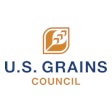
The National Grain and Feed Association (NGFA) reiterated its call on the federal Surface Transportation Board (STB) to follow up on its two-day public hearing on May 22-23 by developing specific policies and guidelines to govern Class I railroads’ demurrage and accessorial practices so that they are commercially fair and structured in a way that a rail customer operating efficiently can avoid such charges.
In its 18-page supplemental statement submitted to the STB on June 6, the NGFA urged that the agency’s rules should require that demurrage and accessorial tariffs imposed by carriers are reciprocal – providing the same treatment and penalties if railroads fail to perform in a similar manner, and that the agency require carriers’ tariffs to be revised to conform with such STB rules.
The NGFA also urged the agency to retain oversight to monitor changes to railroads’ tariffs on demurrage and accessorial charges. The supplemental comments followed NGFA’s May 22 testimony at the STB’s public hearing, as well as the filing of a 43-page statement to the agency on May 8 that was supported by the Corn Refiners Association, National Oilseed Processors Association, North America Freight Car Association and North American Millers’ Association.
The NGFA also said STB’s prompt development of rules governing the commercial fairness and practicability, as well as reciprocity, of railroad tariffs on demurrage and accessorial charges is needed despite some incremental steps made by a couple of railroads following the public hearing.
“There is no question that the (STB’s) attention has brought increased transparency to these railroad practices and triggered a pent-up groundswell of concern among rail customers,” the NGFA stated. “NGFA believes that the information and revelations emanating from the public hearing only strengthens and reinforces the need for the (STB) to follow up by taking further action to facilitate the adoption of commercially fair and practicable, as well as reciprocal, demurrage and accessorial practices by the Class I railroads.”
NGFA’s supplemental comments presented seven “foundational elements” that could be included in STB-established policies and guidance governing demurrage and accessorial tariffs, including:
- Free time for loading and unloading cars once actually placed at a facility
- Commercially fair and standardized railroad debit-and-credit policies that absolve rail customers from paying charges attributable to railroads’ actions
- Prohibiting demurrage and accessorial charges when railroads “bunch” cars at a shipper’s facility
- Prohibiting so-called “congestion charges” against rail customers when railroad yards have an excess of cars
- Applying private car storage charges reciprocally by charging the same railroad fees to the carrier when railroads cause private cars to dwell excessively while in railroad custody between empty release and loaded billing and constructive/actual placement at destination
- Requiring railroad tariffs to contain clearly stated and monetarily comparable penalties that apply against the carrier if it is the cause or the rail customer is not responsible for delays in loading or unloading cars, such as occurrences of spot-and-pull delays when a railroad fails to deliver cars ordered into a customer facility
- Requiring rail carriers to validate and substantiate the accuracy of demurrage and accessorial charges before invoicing their customers
NGFA also said issuance of STB policies and guidance is important to facilitate the efficient operation of dispute-resolution processes, such as that available through NGFA’s Rail Arbitration and Mediation System.
“Tariff ‘concessions’ made today by railroads while (their practices) are in the public glare can – and we submit likely will – vanish over time unless the STB proceeds to establish policy ground rules to govern future railroad practices in this area,” the NGFA concluded.

















